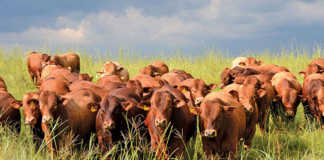At the beginning of the month, farmers were urged to prepare for possible protest action that was due to take place on 4 December, the deadline given by those claiming to represent farm workers in the wage negotiations, for when a new minimum wage had to be implemented. It was made abundantly clear by labour minister, Mildred Oliphant, to all parties involved, that a conclusion on a review of the minimum wage would only be reached in 2013.
According to farmers’ union Agri Wes-Cape, at the time of going to print, some isolated incidents did occur in Franschhoek and Citrusdal, but police were on the scene. “We believe that about 90% of permanent farm workers and a third of seasonal workers showed up for work on 4 December and carried on with their duties.“A group of about 200 people marched to our offices in Paarl to hand over a list of demands, but this was also a peaceful demonstration and the group dispersed peacefully after the list of demands was handed over,” said Agri Wes-Cape’s Porchia Adams.
The list of demands included a basic minimum pay of R150 per day, subsidised housing, electricity and water, the banning of all labour brokers, three month’s paid maternity leave, equal treatment of men and women on farms, as well as that farmers should make land available where farm workers can plant crops to aid household food security. According to Adams, most farmers and farm workers have accepted the process that was being followed by the Department of Labour to review the minimum wage for farm workers and it was only a small group that refused and were still driving strike action.
“December and January is a busy time on farms in the Western Cape since fruit farmers are in the middle of harvesting and wine farmers are getting ready to start harvesting their first grapes. We hope that work will continue on farms and that there will not be a repeat of the violent protest action we saw at the end of November, but we will remain on high alert so that we can react immediately if any protests do erupt,” she said.
According to Agri SA, high-level discussions held at the start of December to resolve the labour unrest in the Western Cape confirmed that the dissatisfaction of farm workers involved much more than minimum wages. “Various social concerns also need to be addressed,” said Anton Rabe, chairperson of Agri SA’s labour committee in a statement.
Furthermore, it became evident that the wage issue and related challenges were mainly related to seasonal workers who had to earn their annual income over a few months, Rabe said. Agri SA again confirmed that a new minimum wage must be the result of a process in terms of the Basic Conditions of Employment Act. Minister Oliphant indicated in November that minimum wages could only be legally amended by March 2013.












